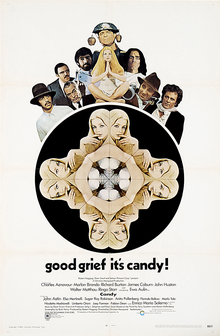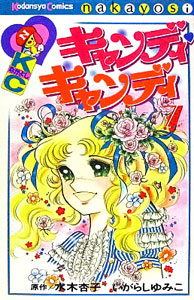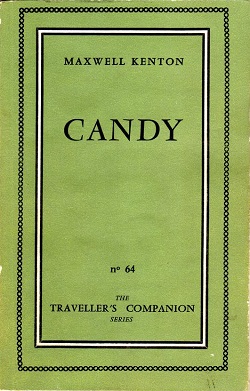The Candy House may refer to:
- The Candy House (film), a 1934 short animated film
- The Candy House (novel), a 2022 novel by Jennifer Egan
The Candy House may refer to:
Bill(s) may refer to:
Ruth may refer to:

Of Mice and Men is a 1937 novella written by American author John Steinbeck. It narrates the experiences of George Milton and Lennie Small, two displaced migrant ranch workers, who move from place to place in California in search of new job opportunities during the Great Depression in the United States.

John Franklin Candy was a Canadian actor and comedian who is best known for his work in Hollywood films. Candy first rose to national prominence in the 1970s as a member of the Toronto branch of the Second City and its SCTV sketch comedy series. He rose to international fame in the 1980s with his roles in comedic films such as Stripes, Splash, Brewster's Millions, Planes, Trains and Automobiles, Spaceballs, The Great Outdoors, Uncle Buck, and Cool Runnings. He also appeared in supporting roles in The Blues Brothers, National Lampoon's Vacation, Little Shop of Horrors, and Home Alone, and featured in dramatic roles in Only the Lonely and JFK.
A kiss is a touch with the lips, usually to express love or affection, or as part of a greeting.

Candy is a 1968 sex farce film directed by Christian Marquand from a screenplay by Buck Henry, based on the 1958 novel of the same name by Terry Southern and Mason Hoffenberg, itself based on Voltaire's 1759 novel Candide. The film satirizes pornographic stories through the adventures of its naive heroine, Candy, played by Ewa Aulin. It stars Charles Aznavour, Marlon Brando, Richard Burton, James Coburn, John Huston, Walter Matthau, and Ringo Starr. Popular figures such as Sugar Ray Robinson, Anita Pallenberg, Florinda Bolkan, Marilù Tolo, Nicoletta Machiavelli, Umberto Orsini, and Enrico Maria Salerno also appear in cameo roles.
Changes may refer to:

Candy Candy is a Japanese series created by Japanese writer Keiko Nagita under the pen name Kyoko Mizuki. The main character, Candice "Candy" White Ardley, is a blonde girl with freckles, large emerald green eyes and long hair, worn in pigtails with bows. Candy Candy first appeared as a manga in April 1975, written by Mizuki and illustrated by manga artist Yumiko Igarashi, a collaboration which was put together by the Japanese magazine Nakayoshi who were interested in recreating a "masterpiece" manga in the same vein as Heidi, Anne of Green Gables and other famous classic titles of literature read predominantly by young girls. The manga series ran for four years and won the 1st Kodansha Manga Award for shōjo in 1977. The story was adapted into an anime series by Toei Animation. There are also three animated short films.
Candy is a type of sweet confectionery, typically prepared by dissolving sugar in water or milk and boiling it to concentrate the sugar.

Candy is a 1958 novel written by Maxwell Kenton, the pseudonym of Terry Southern and Mason Hoffenberg, who wrote it in collaboration for the "dirty book" publisher Olympia Press, which published the novel as part of its "Traveller's Companion" series. According to Hoffenberg,
Terry Southern and I wrote Candy for the money. Olympia Press, $500 flat. He was in Switzerland, I was in Paris. We did it in letters. But when it got to be a big deal in the States, everybody was taking it seriously. Do you remember what kind of shit people were saying? One guy wrote a review about how Candy was a satire on Candide. So right away I went back and reread Voltaire to see if he was right. That's what happens to you. It's as if you vomit in the gutter and everybody starts saying it's the greatest new art form, so you go back to see it, and, by God, you have to agree.

The Cider House Rules is a 1999 American drama film directed by Lasse Hallström from a screenplay by John Irving, based on Irving's 1985 novel of the same name. Its story follows Homer Wells, who lives in a World War II–era Maine orphanage run by a doctor who trained him, and his journey after leaving the orphanage. The film stars Tobey Maguire, Charlize Theron, Delroy Lindo, Paul Rudd, Michael Caine, Jane Alexander, Kathy Baker, Kieran Culkin, Heavy D, Kate Nelligan, and Erykah Badu.
Marianne is the national personification of France.
Child's Play may refer to:
7 Up is a brand of lemon-lime soda.
Brighton Rock may refer to:
Mike may refer to:
The Game most commonly refers to:
Hard Candy may refer to:
Cotton candy is a form of spun sugar.
Willy Wonka is a character from the 1964 Roald Dahl novel Charlie and the Chocolate Factory and its sequel Charlie and the Great Glass Elevator.